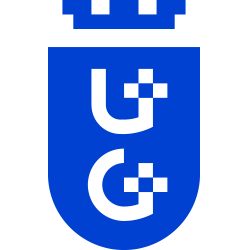
ul. Bażyńskiego 1a 80-952 Gdańsk
Polska
ISNI ID: 0000 0001 2370 4076
GRID ID: grid.8585.0
Agnieszka Woynarowska
Niepełnosprawność, Nr 35 (2019), 2019, s. 127-143
https://doi.org/10.4467/25439561.NP.19.035.12278Artykuł prezentuje działalność ruchów społecznych środowisk osób niepełnosprawnych i akty-wistów z niepełnosprawnością, walczących o możliwość prowadzenia niezależnego życia, o rów-ne szanse i prawa człowieka. Autorka w kontekście teorii ruchów społecznych, nieposłuszeństwa obywatelskiego i samoorganizacji osób niepełnosprawnych ukazuje ową walkę w pryzmacie dwóch protestów osób z niepełnosprawnościami i ich rodziców, które miały miejsce w 2014 i 2018 roku w Sejmie RP.
Disability activists in the struggle for independent lives, equal opportunities and human rights. On the power of the protests, the government's oppression and social defiance
The article presents the activities of disability rights movement and activists with disabilities fight-ing for the possibility of leading an independent life, for equal opportunities and human rights. In the context of the theory of social movements, civil disobedience and self-organization of people with disabilities, the author shows this fight in the prism of two protests of people with disabilities and their parents that took place in 2014 and 2018 in the Polish Parliament.
Keywords: activism of people with disabilities, disability rights movement, the struggle for inde-pendent life and human rights
Agnieszka Woynarowska
Niepełnosprawność, Nr 25 (2017), 2017, s. 126-148
https://doi.org/10.4467/25439561.NP.17.008.8084Being a therapist of adults with intellectual disabilities. Considerations on adulthood with intellectual disabilities and its support
The idea of the text is to show and analyze the meanings therapists apply to supporting adulthood of persons with intellectual disability and the role they play in this support. Therapists are all specialist who construct support in adulthood and carry it out during workshops of occupational therapy or at community self-help homes. In the author opinion these are therapists who create the shape of the placements, the culture of the organization and its specific “adulthood supporting” climate. Therapists and their styles of functioning, individual philosophy of rehabilitation and the way they understand ( adulthood of people with) intellectual disability and realize their professional roles and tasks – are the most significant factors modelling the process of rehabilitation. The text is hence an inquiry aiming to answer the following questions: how the therapists define adulthood, exposing adulthood of persons with intellectual disability? What are the meanings they apply to professional roles realized in practice? How do they understand the process of supporting adulthood?
Agnieszka Woynarowska
Niepełnosprawność, Nr 32 (2018), 2018, s. 72-98
https://doi.org/10.4467/25439561.NP.18.060.10460Artykuł prezentuje obszary badań europejskich studiów nad niepełnosprawnością. Autorka analizuje problematykę badawczą i wątki tematyczne podejmowane przez badaczy zrzeszonych wokół Alter – European Society for Disability Research. Analizie poddaje 200 wystąpień zaprezentowanych na następujących konferencjach: 4th annual conference of Alter: Questioning Contemporary societies through the lens of disability, Paris 2015; 5th annual conference of Alter: Inclusion, Participation and Human Rights in Disability Research comparisons and exchanges, Stockholm 2016; 6th annual conference of Alter: Disability, Recognition and “Community living”. Diversity of practises and plurality of values, Lausanne 2017; 7th annual conference of Alter: Transformer les pratiques et les connaissances au prisme du handicap : expériences, transmissions, formations, organisations, Lille 2018.
European Disability Studies. The Analysis of research trends and research issues of ALTER – European Society for Disability Research
The article presents the research trends of European Disability Studies. The author analyzes the research topics and issues undertaken by researchers associated with the Alter – European Society for Disability Research. The analysis covers 200 conference papers which have been presented at the following conferences: 4th annual conference of Alter: Questioning contemporary societies through the lens of disability, Paris 2015; 5th annual conference of Alter: Inclusion, Participation and Human Rights in Disability Research comparisons and exchanges, Stockholm 2016; 6th annual conference of Alter: Disability, Recognition and “Community living”. Diversity of practises and plurality of values, Lausanne 2017; 7th annual conference of Alter: Transformer les pratiques et les connaissances au prisme du handicap : expériences, transmissions, formations, organisations, Lille 2018.
Agnieszka Woynarowska
Niepełnosprawność, Nr 24 (2016), 2016, s. 142-158
https://doi.org/10.4467/25439561.NP.16.009.6835On possibilities and limitations in support of adult people with moderate and severe intellectual disabilities. Reflexions on the local support system for adults with disabilities in Gdańsk
Adulthood of people with moderate and severe intellectual disability requires a special support in many spheres and in various environments. The adulthood appears not only the result of the condition of a particular person with intellectual disability, but also is a derivative of some offers dedicated for people with disabilities. The article aims to present some local proposals/offers for people with intellectual disabilities, particularly connected with establishing some more adequate/accurate support system network for this group of people.
Agnieszka Woynarowska
Niepełnosprawność, Nr 24 (2016), 2016, s. 80-95
https://doi.org/10.4467/25439561.NP.16.005.6831Until the early of nineties there was no supporting system for autistic children, youths and adults in Poland; there was no diagnostic and counselling centers, educational institutions and parents’ supporting. Thanks to the desperation and efforts of parents and professionals social and educational support service for children and youths was constituted and now the beneficiaries of it have already faced adulthood and experiences connected with this period of life. Therefore a new challenges and questions arise: where and how to support adults with Autism Spectrum Disorders? What is the way adult autistic people function and why it is so difficult for them to function within institutions for people with intellectual disabilities? Does supporting system for people with intellectual disabilities satisfy needs of adults with Autism Spectrum Disorders? Should separate facility for people with autism be constituted or should one follow and search for the opportunities in the existing network of support? In the text the authors analyze the existing support system for adults with Autism Spectrum Disorders, seek answers to these questions and thereby outline the current situation of adults with Autism Spectrum Disorders living in Poland.